Primarily active as a scientist in the second half of the seventeenth century, Sir Isaac Newton (1642 – 1727) was an English physicist and mathematician, who more than anyone else, led the world towards scientific revolution. His book Principia is regarded by many as the most important scientific work. Isaac Newton changed the way how numerous phenomena were viewed by scholars and due to his influence in the development of humankind he is regarded by many as the greatest scientist of all time. Here is a list of his 10 major accomplishments and achievements including his inventions, discoveries, theories and other contributions to science.
#1 hiS THREE LAWS OF MOTION LAID THE FOUNDATION OF CLASSICAL MECHANICS
Newton first compiled his three laws of motion, inertia, F = ma and action-reaction, in his 1687 work Principia. They describe the relationship between a body and the forces acting upon it, and its motion in response to those forces. Newton’s laws were verified by experiment and observation for over 200 years and they still remain excellent approximations at the scales and speeds of everyday life. They laid the foundation of classical mechanics due to which it is also widely known as Newtonian mechanics. Classical mechanics describes the motion of bodies under the influence of a system of forces and, since Newton, has remained a principal field of study in mathematics as well as physics.
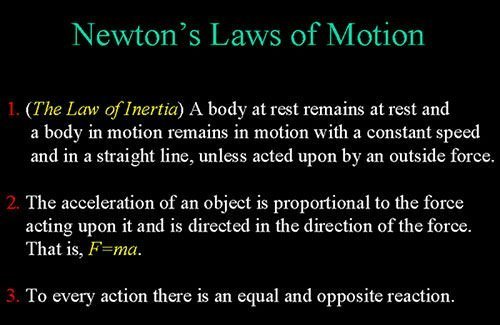
#2 HE WAS THE FIRST TO FORMULATE THE NOTION OF GRAVITY AS A UNIVERSAL FORCE
In Principia, Newton formulated his law of universal gravitation which states that any two bodies in the universe attract each other with a force that is directly proportional to the product of their masses and inversely proportional to the square of the distance between them. Among other things, the revolutionary law helped in explaining phenomena such as the tides and trajectories of comets. Newton’s universal gravitation law was superseded by Einstein’s theory of general relativity later, but it continues to be used as an excellent approximation of the effects of gravity in most applications.
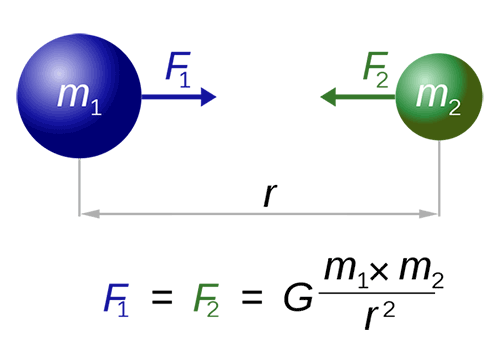
#3 PRINCIPIA IS ONE OF THE MOST IMPORTANT WORKS IN THE HISTORY OF SCIENCE
On 5th July 1687 Newton’s Philosophiæ Naturalis Principia Mathematica, simply known as Principia, was first published. In it, with his theory of calculus and laws of motion and universal gravitation, Newton provided a revolutionary new mathematical description of the Universe. Apart from other things, he combined his laws to explain Kepler’s laws of planetary motion. Newton thus removed the last doubts about the validity of the heliocentric model of the Solar System. Principia was instrumental in enabling the industrial revolution that followed soon and is still useful in non-relativistic technologies of the modern world. It is regarded not only as Newton’s most important work but also the fundamental work for the whole of modern science.
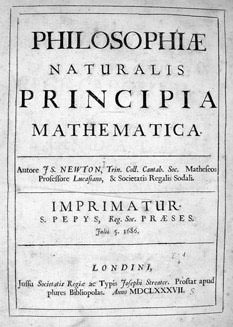
#4 HE DISCOVERED THE GENERALISED BINOMIAL THEOREM IN 1665
Isaac Newton is credited with discovering the generalised binomial theorem, valid for any rational exponent, in 1665. It remains to be used extensively in mathematics. Apart from the binomial theorem, Newton’s contributions to mathematics include discovery of Newton’s identities, which have applications in many areas of mathematics including Galois theory, invariant theory, group theory and combinatorics; Newton’s method, which can be used to find a minimum or maximum of a function, quickly find the reciprocal of a number and to solve transcendental equations; and substantial contributions to the study of power series and theory of finite differences.
#5 ISAAC NEWTON INVENTED CALCULUS
In 1665, Newton began to develop a mathematical theory that later became calculus, the mathematical study of change. Calculus gave mathematicians for the first time a powerful form of analysis to find the slopes of curves and areas under curves. Today, it has widespread uses in science, engineering and economics and can solve many problems that algebra alone cannot. Though there was a long scientific controversy between Newton and German mathematician Gottfried Leibniz over who invented calculus, modern historians believe that they both invented it independently.
#6 HE INVENTED THE FIRST REFLECTING TELESCOPE
In 1668, Isaac Newton invented the first successful reflecting telescope, now known as the Newtonian telescope. The telescope until then was a large and cumbersome instrument. Newton’s telescope, which used mirrors instead of lenses, was a more powerful instrument and ten times smaller than traditional telescopes. The simple design of the Newtonian telescope makes it still quite among amateur astronomers.
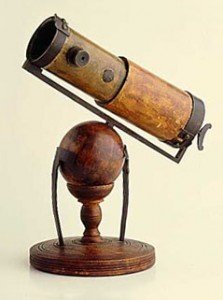
#7 HE DID GROUND BREAKING WORK IN OPTICS
In late 1660s and early 1670s, Isaac Newton famously determined that white light was a mix of colours which can be separated into its component parts with a prism. He also showed that the multi-coloured spectrum produced by a prism could be recomposed into white light by a lens and a second prism. Thus Newton was able to counter the then held believe that light is simple and homogeneous; and prove that it is complex and heterogeneous. The heterogeneity of light has since been the foundation of physical optics.
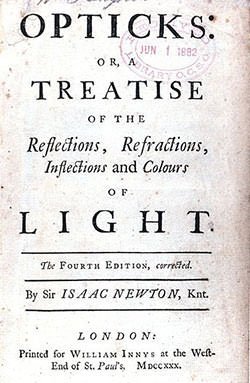
#8 HE IDENTIFIED LIGHT AS THE SOURCE OF COLOUR SENSATION
From his prism experiments, Newton developed his Theory of Colour which is considered his most important contribution to optics. His colour theory held that colour is the result of objects interacting with already-coloured light rather generating the colour themselves. The individual rays of light excite sensation of colour when they strike the retina of the eye. Hence it was only after Newton’s study of optics that light was identified as the source of colour sensation.
#9 HE INFERRED CORRECTLY THE OBLATENESS OF EARTH’S SPHEROIDAL FIGURE
Other contributions of Isaac Newton to science include being the first to analyse the phenomenon known as Newton’s rings, in which an interference pattern is created by the reflection of light between a spherical surface and an adjacent flat surface; formulating the Newton’s law of cooling, which states that the rate of heat loss of a body is proportional to the difference in temperatures between the body and its surroundings; introducing the notion of a Newtonian fluid, a fluid whose viscosity is constant for different rates of shear and does not change with time; performing the first analytical determination of the speed of sound in air; and inferring correctly that Earth should be shaped as an oblate spheroid.
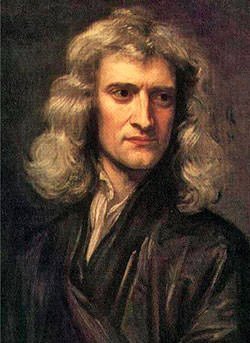
#10 He WAS THE SECOND SCIENTIST TO BE KNIGHTED
Apart from his contributions to science, Isaac Newton was appointed Warden in 1696, and Master in 1700, of the Royal Mint; served as a member of the Parliament of England in 1689 – 1690 and 1701 – 1702; and was elected President of the Royal Society in 1703. As leader of the Royal Mint, Newton exercised his powers to punish counterfeiters and in 1717 in the “Law of Queen Anne” he moved the Pound Sterling from the silver standard to the gold standard. In 1705, Newton was knighted by Queen Anne. Sir Isaac Newton was the second scientist to be knighted, after Sir Francis Bacon.

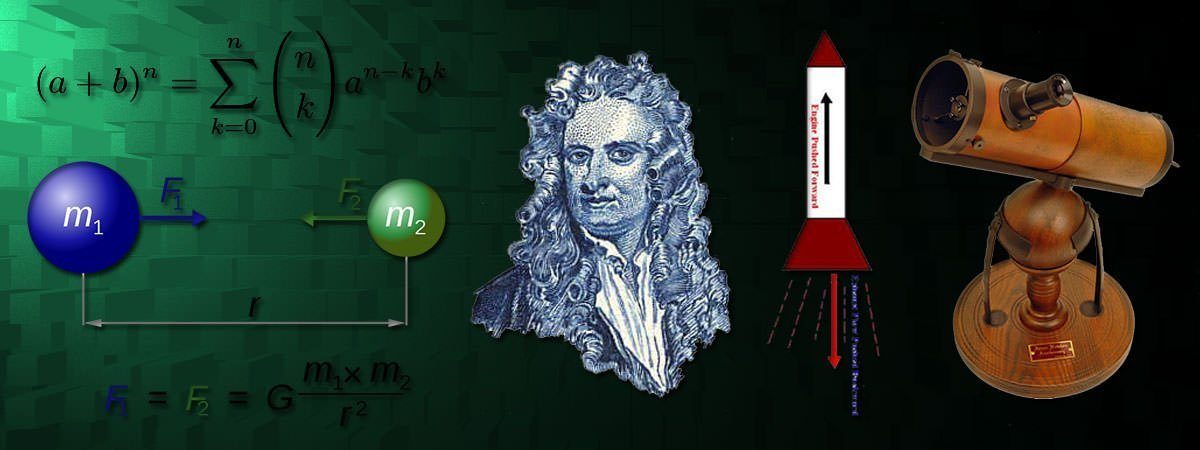
Sir Isaac Newton was a believer in God. He believed that we were merely discovering Gods thoughts after Him. He believed that God was at the heart of Science and not the other way around
Newton’s belief in God was common in his day. About 97% of today’s scientists are atheists. Many clergymen were there at the start of scientific discovery. Religion got here first, and science is the new kid on the block.
Newton also was into alchemy. As incredibly intelligent Newton was, he got a few things wrong.
You would be wrong only 50% of scientists today are atheists.
Isaac Newton really was a great personality. He discovered many useful things that are very useful.